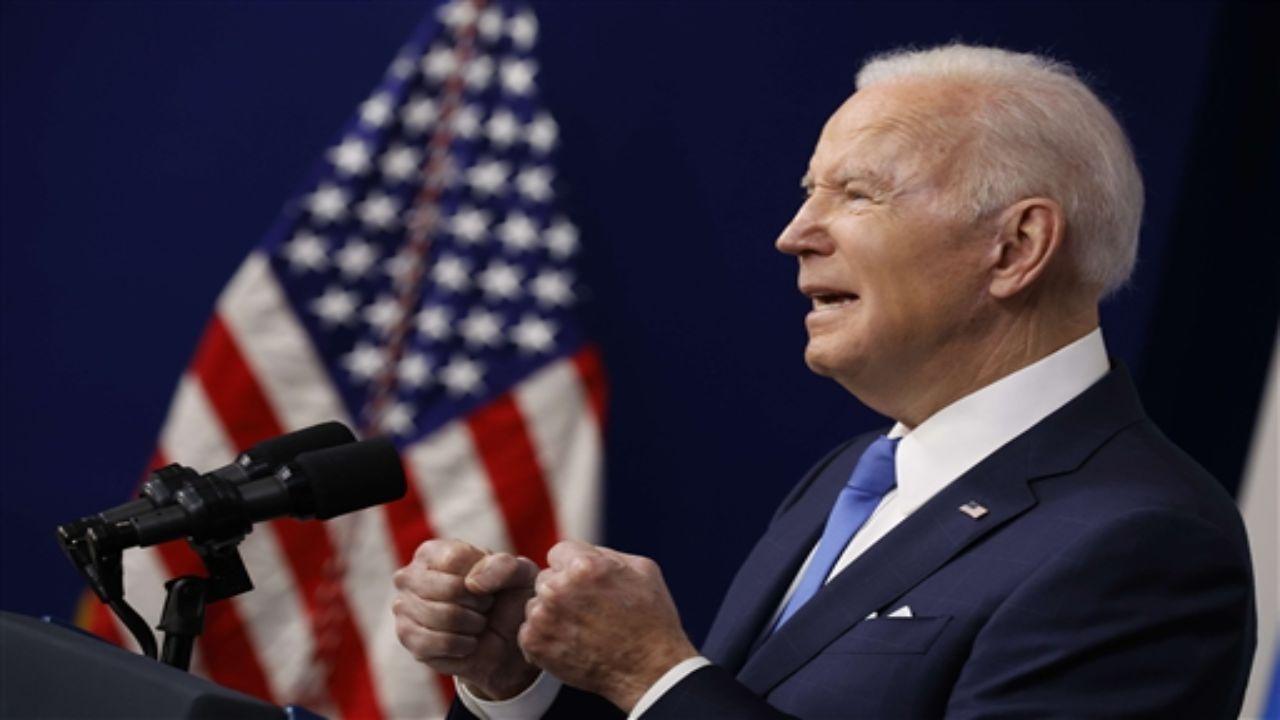Russia fired back with a sharply worded objection, calling the deployments unfounded and 'destructive'

US President Joe Biden. Pic/AFP
President Joe Biden is ordering 2,000 US-based troops to Poland and Germany and shifting 1,000 more from Germany to Romania, demonstrating to both allies and foes America's commitment to NATO's eastern flank amid fears of a Russian invasion of Ukraine, the Pentagon said Thursday.
ADVERTISEMENT
Russia fired back with a sharply worded objection, calling the deployments unfounded and “destructive.” Russian President Vladimir Putin also had a new telephone exchange with British Prime Minister Boris Johnson. But readouts from both governments showed no progress, with Putin saying the West was giving no ground on Russia's security concerns and Johnson expressing deep concern about Russia's “hostile activity” on the Ukrainian border, referring to Putin's buildup of 1,00,000 troops there.
The Biden administration is aiming to demonstrate US resolve without undermining efforts to find a diplomatic solution to the crisis. Biden notably has not sent military reinforcements to the three Baltic countries on NATO's eastern flank — Estonia, Latvia and Lithuania — that are former states of the Soviet Union.
Russian invasion “imminent”
No US troops are being sent to Ukraine, and White House press secretary Jen Psaki on Thursday said the administration has stopped calling a Russian invasion “imminent,” because that word implies Washington knows Putin has made a decision to invade. Officials say Putin's intentions remain unclear.
However, increasing US troop levels in Eastern Europe is exactly what Putin has said he finds intolerable, along with the prospect of Ukraine joining NATO. The US already has several thousand troops in Poland, and Romania is host to a NATO missile defense system that Russia considers a threat. The US presence in the region has increased since 2014 when Russia made its first invasion of Ukraine.
Pentagon press secretary John Kirby said the soon-to-deploy US forces are intended to temporarily bolster US and allied defensive positions. “These are not permanent moves,” he said, stressing that the purpose is to reassure allies. Kirby said Russia had continued its buildup, even in the previous 24 hours, despite US urgings that it deescalate.
In Moscow, a senior official said the US movements will complicate the crisis. “The unfounded destructive steps will only fuel military tensions and narrow the field for political decisions,” Deputy Foreign Minister Alexander Grushko said in remarks carried by the Interfax news agency.
Ukraine plays down fears of a Russian attack
Ukraine's Foreign Minister Dmytro Kuleba again played down fears of a Russian attack in a call with reporters but said that if Russia makes moves that could signal an imminent invasion Ukraine would react as necessary.
Of the 2,000 US troops newly deploying from Fort Bragg, North Carolina, about 1,700 are members of the 82nd Airborne Division infantry brigade, who will go to Poland. The other 300 are with the 18th Airborne Corps and will go to Germany as what the Pentagon called a “joint task force-capable headquarters.”
Poland's Defense Minister Mariusz Blaszczak wrote on Twitter that the deployment to his country is “a strong signal of solidarity in response to the situation in Ukraine.” The 1,000 US troops going to Romania are members of the 2nd Cavalry Regiment based at Vilseck, Germany. They will augment about 900 already in Romania, Kirby said.
The cavalry deployment's purpose is to “deter aggression and enhance our defensive capabilities in frontline allied states during this period of elevated risk,” the Pentagon said in a separate written statement. “It's important that we send a strong signal to Mr Putin and to the world” of the US commitment to NATO, Kirby said.
NATO command
He said France has decided it, too, will send troop reinforcements to Romania under NATO command, and he noted that a number of other European NATO countries are considering adding forces on NATO's eastern flank. Biden and French President Emmanuel Macron touched base in a phone call Wednesday night.
NATO has been beefing up its defenses around allies in Eastern Europe since late last year. Denmark, for example, said it was sending a frigate and F-16 warplanes to Lithuania, and Spain was sending four fighter jets to Bulgaria and three ships to the Black Sea to join NATO naval forces. The Netherlands plans to send two F-35 fighter aircraft to Bulgaria in April and is putting a ship and land-based units on standby for NATO's Response Force.
Biden has said he will not put American troops in Ukraine to fight any Russian incursion, although the United States is supplying Ukraine with weapons to defend itself and seeking to reassure allies in Eastern Europe that Washington will fulfill its treaty obligation to defend them in the event they are attacked.
This story has been sourced from a third party syndicated feed, agencies. Mid-day accepts no responsibility or liability for its dependability, trustworthiness, reliability and data of the text. Mid-day management/mid-day.com reserves the sole right to alter, delete or remove (without notice) the content in its absolute discretion for any reason whatsoever
 Subscribe today by clicking the link and stay updated with the latest news!" Click here!
Subscribe today by clicking the link and stay updated with the latest news!" Click here!







